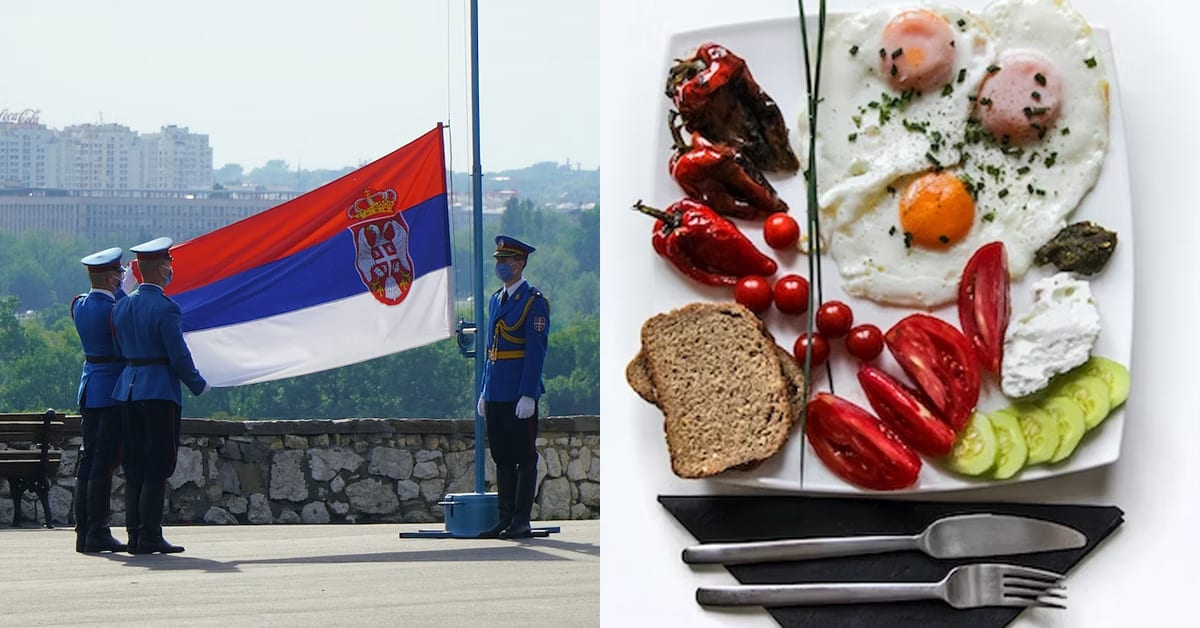Serbian cuisine is a blend of various influences from the Balkans, Central Europe, and the Mediterranean. It is characterized by its rich and hearty dishes, which are often made with meat, vegetables, and spices. Serbian food is known for its strong flavors and aromas, and it is often enjoyed with a glass of rakija, a traditional Serbian brandy.
Some of the most popular Serbian dishes include cevapi, a type of grilled meat, sarma, stuffed cabbage rolls, and gibanica, a savory pastry made with cheese and phyllo dough. Serbian cuisine is a reflection of the country’s history and culture, and it is a must-try for anyone visiting Serbia.
Serbian cuisine
Is Serbian food halal?
Some Serbian dishes may be halal, but many contain pork or other non-halal ingredients. It is important to check the ingredients and preparation methods before consuming any Serbian dish.
What kind of food do Serbian eat?
Serbian cuisine is diverse and influenced by various cultures, including Turkish, Austrian, Hungarian, and Mediterranean. Some popular dishes include:
- Ćevapi – grilled minced meat sausages served with onions and flatbread
- Pljeskavica – a grilled meat patty served with onions, kajmak (a type of cream cheese), and ajvar (a red pepper spread)
- Sarma – stuffed cabbage rolls filled with minced meat and rice
- Burek – a savory pastry filled with meat, cheese, or vegetables
- Goulash – a stew made with beef, onions, and paprika
- Kajmak – a creamy dairy product similar to clotted cream
- Rakija – a fruit brandy commonly served as an aperitif or digestif
- Pita – a type of pastry filled with cheese, spinach, or meat
- Ajvar – a red pepper spread made with roasted peppers, garlic, and oil
- Prebranac – a baked bean dish made with white beans, onions, and paprika.
How can you tell if the food is halal in Serbia?
In Serbia, halal food is not widely available, but there are some restaurants and shops that offer halal food. To determine if the food is halal, you can look for a halal certification label or ask the restaurant or shop if they serve halal food.
You can also check if the meat is sourced from a halal-certified supplier. Additionally, some Muslim communities in Serbia may have their own halal food sources and can provide recommendations.
Is it hard to find halal food in Serbia?
According to online sources, finding halal food in Serbia can be challenging, especially outside of major cities like Belgrade. However, some halal restaurants and markets in Belgrade and Novi Pazar cater to the Muslim population.
It is recommended to do some research and ask locals for recommendations to find halal food options.
Is Serbian food healthy?
Serbian cuisine is generally considered healthy as it is based on fresh and natural ingredients such as vegetables, fruits, meat, and dairy products. However, some traditional dishes, such as sarma (stuffed cabbage rolls) and cevapi (grilled minced meat), may be high in calories, fat, and salt.
It is important to consume these dishes in moderation and balance them with healthier options. Serbian cuisine can be healthy if consumed in moderation and with a balanced diet.
What is Serbian food similar to?
Serbian food is similar to other Balkan cuisines, such as Croatian, Bosnian, and Bulgarian. It also shares similarities with Turkish and Greek cuisine due to the Ottoman influence on the region.
Some dishes, such as cevapi (grilled minced meat), burek (phyllo pastry filled with meat or cheese), and ajvar (roasted red pepper spread), are popular throughout the Balkans.
Steps to find halal food in Serbia
Here are some tips to find halal food in Serbia
- Research halal food options in Serbia: Start by researching halal food options in Serbia. You can use search engines, social media, and online directories to find halal restaurants, grocery stores, and markets.
- Check for halal certification: Once you have identified halal food options, check if they have halal certification. Halal certification ensures that the food is prepared according to Islamic dietary laws.
- Ask locals: If you are in Serbia, ask locals for recommendations on halal food options. They may be able to suggest halal restaurants or markets that are not listed online.
- Look for vegetarian options: If you are unable to find halal food options, look for vegetarian options. Vegetarian food is generally considered halal as long as it does not contain any non-halal ingredients.
- Check food labels: When shopping for food, check the labels for halal certification or ingredients. Avoid food that contains non-halal ingredients such as pork, alcohol, and gelatin.
- Consider cooking at home: If you are unable to find halal food options, consider cooking at home. You can buy halal meat from a halal butcher or online store and prepare your own meals.
- Be flexible: If you are traveling to Serbia, be flexible with your food choices. You may not always be able to find halal food options, so be prepared to make adjustments to your diet.

